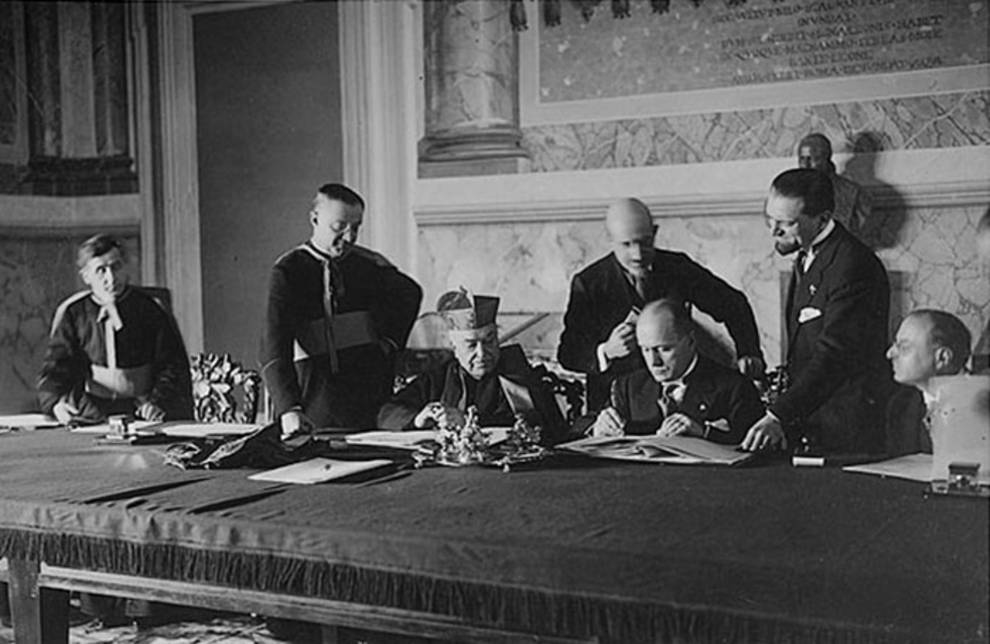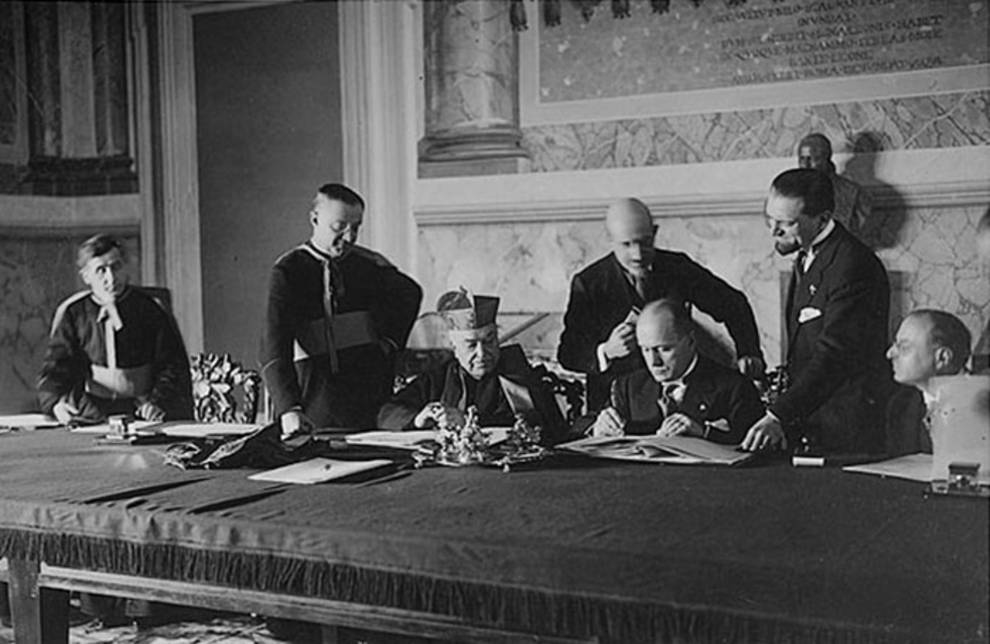
Lateran Accords: What did the Italian State and the Holy See agree on?
The papal state was founded in 754, when the king of the Franks, Pipin the Short, to whom Pope Stephen II sought protection from the Lombards, presented the Holy See with the territories of the Roman and Raven Exarchates, which once belonged to Byzantium.
In 772, Charlemagne extended the papal possessions near Ravenna, and his son Louis the Pious presented several more territories. Complete independence from the feudal nobility of Italy, France and Germany, the Papal State gained under Innocent III.
In the following centuries, Rome’s influence on the political events in Europe was one of the most decisive and only began to weaken at the end of the 18th century. This was especially evident in the era of the revolutionary and Napoleonic wars.

After the proclamation of the united Italian kingdom, the Papal States, together with Rome (except for the Vatican), became part of it only on September 20, 1870, when its ally France was defeated by Prussia.
The next 60 years, the popes considered themselves "prisoners", continuing to lay claim to secular power. On February 11, 1929, Vatican Secretary of State Cardinal Pietro Gasparri and Italian Prime Minister Benito Mussolini signed an agreement at the Lateran Palace in Rome, according to which the Vatican received sovereignty unique in international law.
He became the possession of not the territorial unit of 44 hectares in the center of Rome, or its population, but belonged to a legal entity called the Apostolic See, whose power in the territory of the Vatican was supreme and the only one.
Under the Lateran Agreements, Italy pledged to pay damages to the Holy See for the loss of sovereignty, territory and property in 1870, and the Vatican to recognize the united Italian kingdom under the domination of the Savoy dynasty and Rome as its capital. Also adhere to neutrality in international relations and refrain from mediating if all parties have not agreed to participate in it.
In 772, Charlemagne extended the papal possessions near Ravenna, and his son Louis the Pious presented several more territories. Complete independence from the feudal nobility of Italy, France and Germany, the Papal State gained under Innocent III.
In the following centuries, Rome’s influence on the political events in Europe was one of the most decisive and only began to weaken at the end of the 18th century. This was especially evident in the era of the revolutionary and Napoleonic wars.

Photo © jnsm.com.ua
After the proclamation of the united Italian kingdom, the Papal States, together with Rome (except for the Vatican), became part of it only on September 20, 1870, when its ally France was defeated by Prussia.
The next 60 years, the popes considered themselves "prisoners", continuing to lay claim to secular power. On February 11, 1929, Vatican Secretary of State Cardinal Pietro Gasparri and Italian Prime Minister Benito Mussolini signed an agreement at the Lateran Palace in Rome, according to which the Vatican received sovereignty unique in international law.
He became the possession of not the territorial unit of 44 hectares in the center of Rome, or its population, but belonged to a legal entity called the Apostolic See, whose power in the territory of the Vatican was supreme and the only one.
Under the Lateran Agreements, Italy pledged to pay damages to the Holy See for the loss of sovereignty, territory and property in 1870, and the Vatican to recognize the united Italian kingdom under the domination of the Savoy dynasty and Rome as its capital. Also adhere to neutrality in international relations and refrain from mediating if all parties have not agreed to participate in it.


